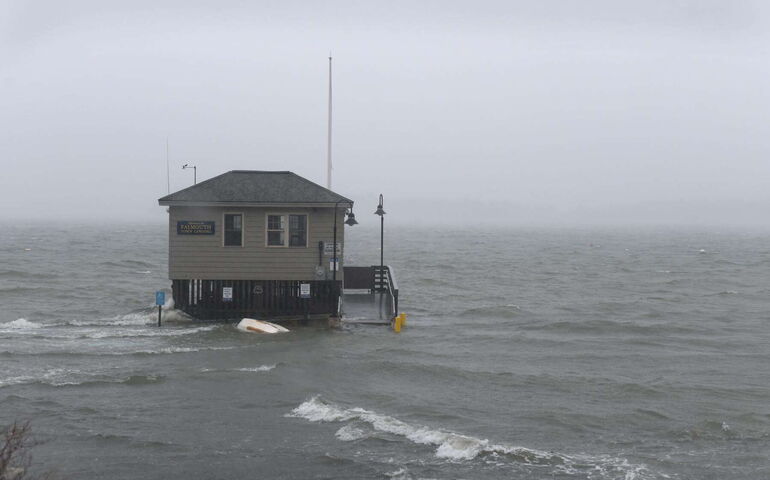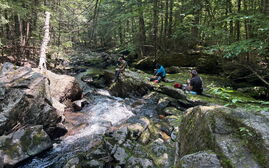Mills requests federal disaster aid for $70M in damage from January storms
 FILE PHOTO / FRED FIELD
An overturned skiff floats near the Harbormaster’s building at the Falmouth Town Landing amid the storm of Jan. 13.
FILE PHOTO / FRED FIELD
An overturned skiff floats near the Harbormaster’s building at the Falmouth Town Landing amid the storm of Jan. 13.
Gov. Janet Mills on Friday formally asked President Joe Biden for a major disaster declaration that would help Maine’s eight coastal counties recover from the severe damage and flooding of back-to-back storms on Jan. 10 and Jan. 13.
In the letter, Mills said the cost of damage — estimated at $70.3 million for public infrastructure alone — is beyond Maine's ability to pay.
If the request is approved, Maine would gain access to federal funds to repair damaged roads, bridges, public buildings, utilities and other public infrastructure in Washington, Hancock, Waldo, Knox, Lincoln, Sagadahoc, Cumberland and York counties.
Mills also requested individual assistance to eligible families impacted by property damage in the eight counties.
"Given that affected homeowners are also having to recover from demolition of the waterfront infrastructure that inherently supports their livelihood, the individual assistance program is just one necessary component to the comprehensive recovery needs of disaster survivors spanning all eight coastal counties,” wrote Mills.
“With much of the marine and aquaculture field operating out of primary homes with private docks, hundreds of disaster survivors are now fighting to sustain generational family businesses with limited support.”
Mills noted that Maine produces 90% of the nation’s lobster supply and is home to a thriving marine economy — now at risk of decline.
Repair and rebuild
“The recovery of Maine’s coastline will require the support of every federal resource available, and due to the compounded affects sustained by the coastal primary homeowners that help to sustain Maine’s economy, recovery is uncertain without the Individual Assistance program,” she wrote.
The requests are specifically for the Federal Emergency Management Agency’s Public Assistance Program, Hazard Mitigation Grant Program, and Individual Assistance Program.
The Public Assistance Program provides supplemental grants to state, local and tribal governments so communities can quickly respond to and recover from major disasters or emergencies.
The Hazard Mitigation Grant Program provides funding to state, local and tribal governments so they can develop hazard mitigation plans and rebuild in a way that reduces future disaster losses in their communities.
The Individual Assistance Program provides financial assistance and direct services to eligible individuals and households affected by a disaster, who have uninsured or underinsured necessary expenses and serious needs.
December storm
Last month, a major disaster declaration was approved to help 10 counties recover from the December storm that caused significant flooding, prolonged power outages and extensive property damage across central and western Maine.
The declaration unlocked public assistance and individual assistance.
In response to the December declaration, the deadline to apply for public assistance is Feb. 29 and for individual assistance is April 1.
For more information, click here.
State aid
Mills also separately proposed $50 million to help communities rebuild infrastructure and enhance climate resiliency, by introducing it as standalone legislation rather than as part of the forthcoming supplemental budget.













0 Comments